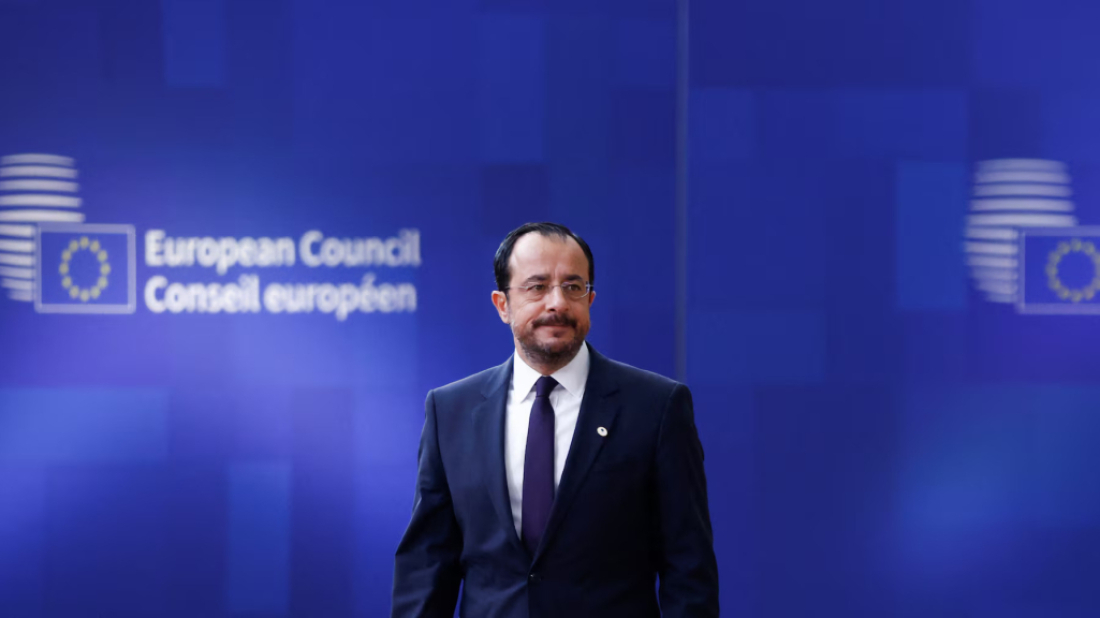live Israeli military says it has launched fresh strikes on Tehran: All the latest news on the Iran strikes
The Israeli military has begun a new wave of strikes on Tehran, it said late on Monday. The strikes came after it issued...

The president of Cyprus reaffirmed his government's commitment to strengthening defense and security ties with the U.S., highlighting that his recent meeting with President Biden outlined ambitious steps for their already strong bilateral relations.
After meeting with President Joe Biden, Cyprus President Nikos Christodoulides declared his intention to deepen defence and security ties with the United States, calling the two countries' relationship at a "historic high."
During his first 18 months in office, Christodoulides emphasized energy initiatives and strengthening law enforcement collaboration against money laundering and sanctions evasion. The US-funded CYCLOPS center, which provides essential maritime security training to officials from neighboring nations, is a crucial component.
Christodoulides indicated that if a legislative arms ban is lifted, it may be possible to purchase weapons made in the United States. Additionally, he highlighted Cyprus's contribution to the repatriation of more than 3,600 citizens from Lebanon, establishing the island as a temporary safe haven.
The president also praised the Amalthea plan, which made it possible to send a substantial amount of aid to Gaza through a recently built sea channel. He reaffirmed Cyprus's commitment to Western principles and asked US law enforcement for help in looking into sanctions evasion linked to Russian interests.
Regarding energy cooperation, Christodoulides said he was confident that two large US corporations, ExxonMobil and Chevron, will be involved in exploring for hydrocarbons in Cyprus' offshore economic zone. Chevron is updating its development plans for the Aphrodite gas field, while ExxonMobil is set to drill two more wells in January. These developments position Cyprus to become a major gas supplier, with significant geopolitical implications.
"As we prepare to direct the first gas from Aphrodite to market, Cyprus will become a gas seller, a development that is crucial both financially and geopolitically," Christodoulides stated.
Follow the latest developments and global reaction after the U.S. and Israel launched “major combat operations” in Iran, prompting retaliation from Tehran.
Saudi Arabia’s state oil giant Saudi Aramco closed its Ras Tanura refinery on Monday following an Iranian drone strike, an industry source told Reuters as Tehran retaliated across the Gulf after a U.S.-Israeli attack on Iranian targets over the weekend.
The Kremlin is utilising the recent United States and Israeli military strikes on Iran to validate its ongoing war in Ukraine. Russian officials are pointing to the escalation in the Middle East as evidence that Western nations do not adhere to international rules.
The Middle East crisis intensifies after the deadly attack on the compound of the Supreme Leader of Iran Ali Khamenei on Saturday that killed him, other family members and senior figures. Iran has launched retaliatory strikes on U.S. targets in the region.
Ayatollah Alireza Arafi has moved into a pivotal constitutional role following the death of Supreme Leader Ayatollah Ali Khamenei, becoming the clerical member of Iran’s temporary leadership council under Article 111 of the Constitution of the Islamic Republic of Iran.
Former U.S. President Bill Clinton told lawmakers that President Donald Trump told him he had "some great times" with convicted sex offender Jeffrey Epstein before their relationship soured, according to a video released on Monday (2 March).
The U.S.-Iran crisis has entered its third day, with further strikes reported across the Middle East and the death toll rising. Oil prices have surged to levels last seen during the Covid-19 pandemic, raising fears of economic disruption and higher prices worldwide.
The UK said it's allowing the U.S. to use its bases for defensive strikes against Iran amid escalating missile attacks, after a suspected drone strike hit a British airbase in southern Cyprus, causing limited damage.
The Kremlin is utilising the recent United States and Israeli military strikes on Iran to validate its ongoing war in Ukraine. Russian officials are pointing to the escalation in the Middle East as evidence that Western nations do not adhere to international rules.
European Union stands with its member states in the face of any threat, EU Commission President Ursula von der Leyen said in response to the drone strike that hit Britain's Royal Air Force base of Akrotiri in southern Cyprus overnight.
You can download the AnewZ application from Play Store and the App Store.

What is your opinion on this topic?
Leave the first comment